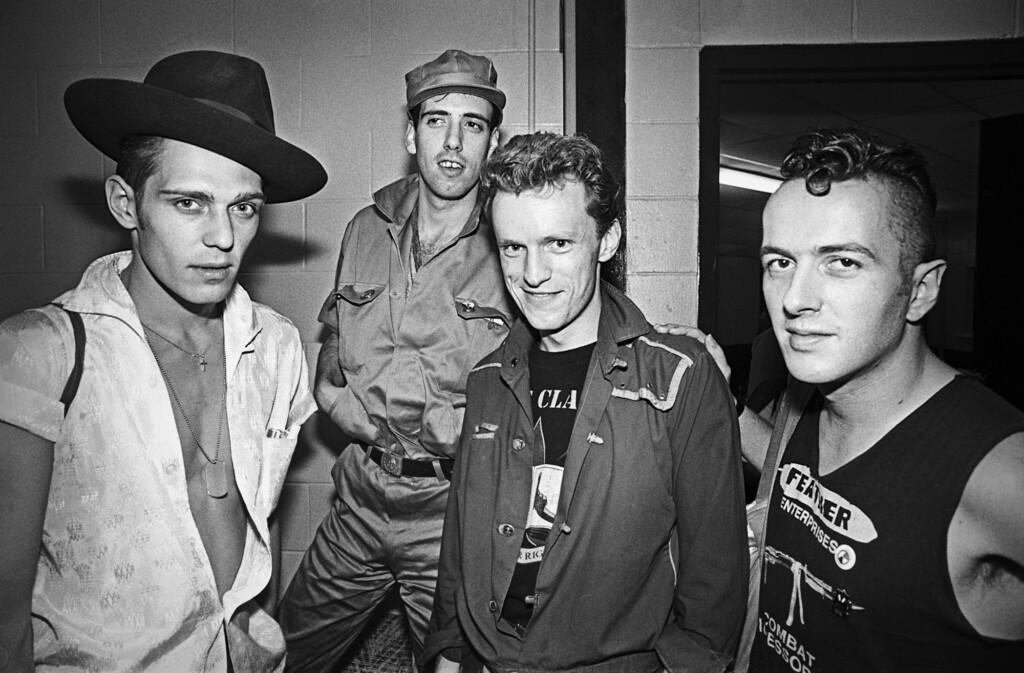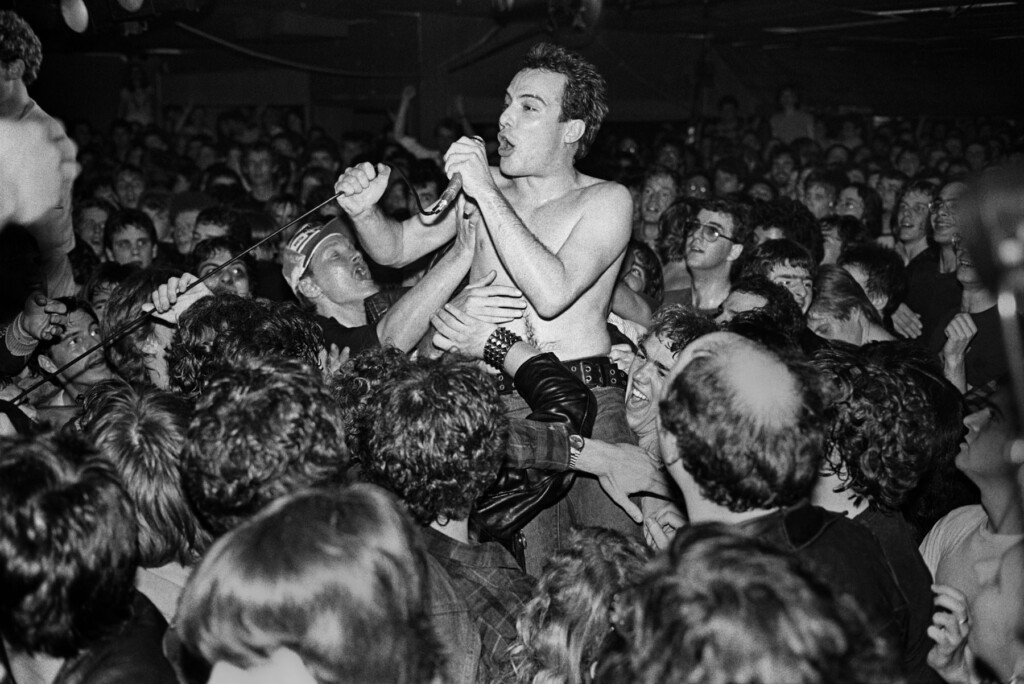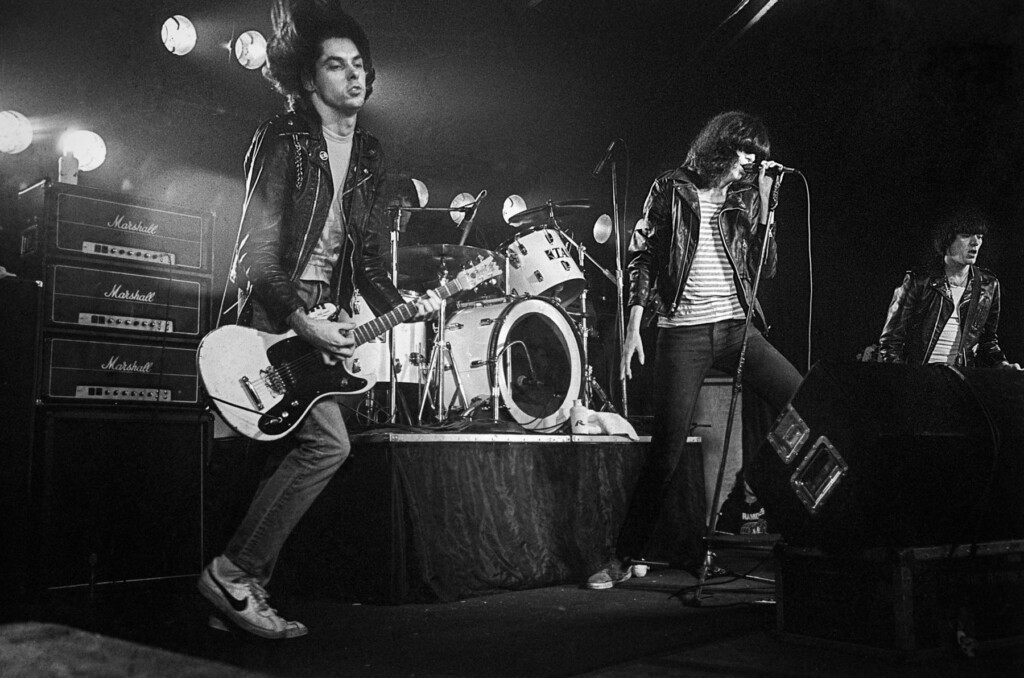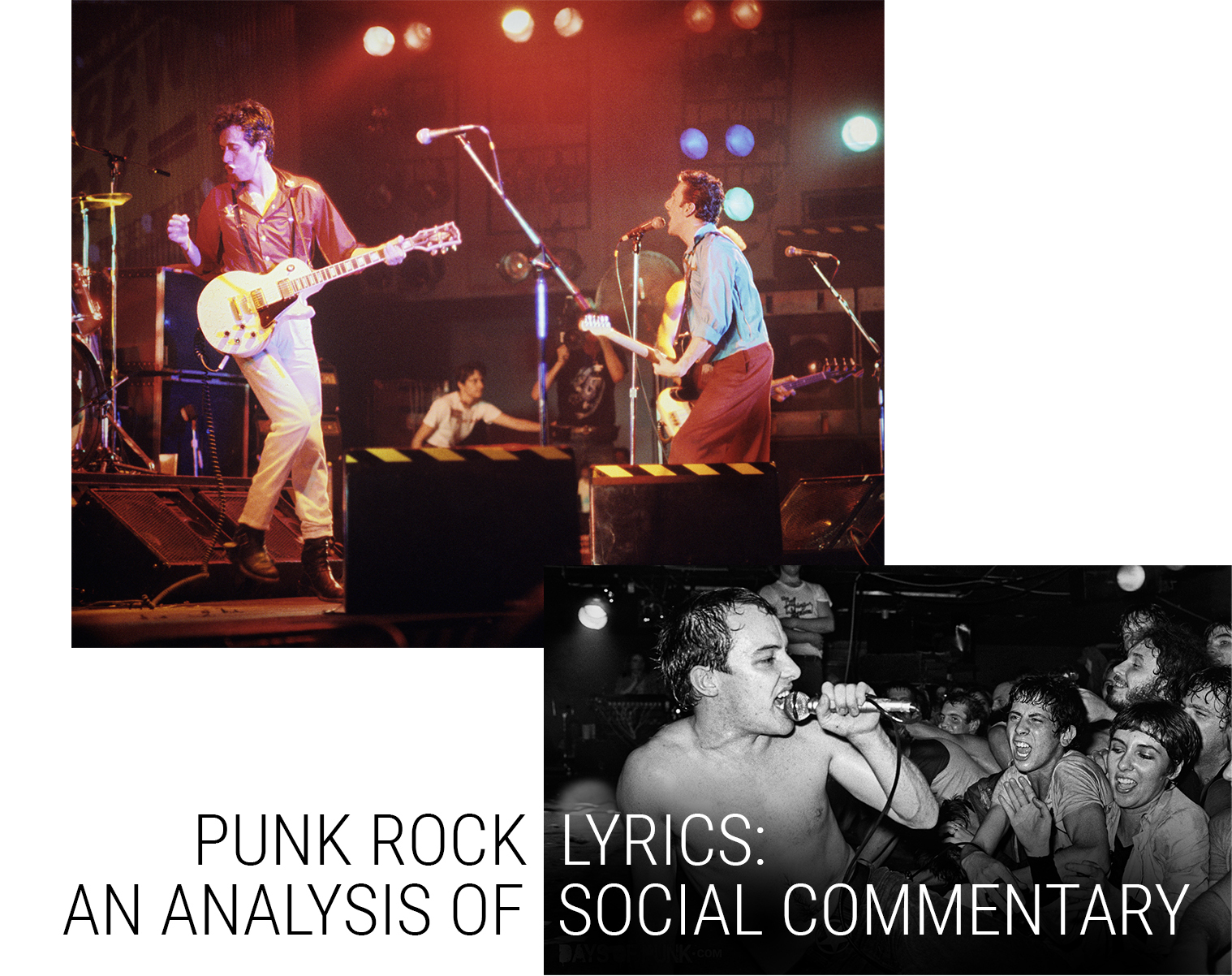Days of Punk
| Fashion
Punk Rock Lyrics: An Analysis of Social Commentary
Posted by Michael Grecco
Punk rock, with its raw sound and piercing vocals, was never just about music. It was a movement, a form of protest, and a way to challenge the status quo. The heart of this challenge often lay in the lyrics, a potent blend of socio-political commentary that highlighted the issues of the day and provided insight into the minds and concerns of those in the punk scene.
Poverty and Urban Decay:
The Clash’s “Lost in the Supermarket” encapsulates the feelings of alienation within modern consumer culture. Lyrics such as “I came in here for the special offer, a guaranteed personality” speak to the commodification of individuality and the societal pressures of conformity. Beyond that, there’s an underlying theme of growing up in post-war Britain, with its housing estates and economic challenges. The song touches on the deep-seated feeling of being just another product on a shelf, lost in the vast expanse of urban life.

Members of the English punk rock band The Clash; Nicky, “Topper” Headon, Joe Strummer, Bassist Paul Simonon, and Mick Jones pose for a portrait back stage in Boston, Massachusetts on May 05, 31.
Rebellion Against Societal Norms:
Sex Pistols’ “God Save the Queen” was a direct affront to the British establishment. Released during Queen Elizabeth II’s Silver Jubilee in 1977, lines like “God save the queen, she ain’t no human being” were seen as a direct challenge to British nationalism and the monarchy. This song encapsulates punk’s penchant for irreverence, pushing back against accepted norms and challenging the reverence given to traditional institutions.
Political Dissent:
Dead Kennedys’ “Holiday in Cambodia” serves as a scathing critique of the Western world’s ignorance towards the atrocities in Cambodia under Pol Pot. Jello Biafra’s biting sarcasm—”Well, you’ll work harder with a gun in your back, for a bowl of rice a day”—highlighted the stark contrast between Western privilege and the realities of life under totalitarian regimes. Through sharp and incisive lyrics, punk bands like Dead Kennedys laid bare the hypocrisies and injustices of global politics.

Jello Biafra, lead singer of the punk rock group Dead Kennedys performs on stage on April 1981 in Boston, Massachusetts.
Personal Expression and Identity:
The Ramones’ “I Wanna Be Sedated” gives a candid look into the struggles of touring and the desire to escape the chaos of life on the road. While on the surface it might seem like a straightforward punk anthem, deeper analysis reveals an underlying sentiment of weariness and the search for solace. It’s a reflection of the broader punk ethos—a quest for authenticity amidst a world perceived as phony and oppressive.
The impact of these messages was profound. Punk lyrics didn’t simply reflect society; they interacted with it, challenging listeners to confront uncomfortable truths and question their place within the system. This lyrical activism cultivated a community of listeners who were politically aware, socially conscious, and unafraid to challenge authority.

Ramones base player Dee Dee Ramone, guitarists Johnny Ramone, lead singer Joey Ramone, and drummer Tommy perform in Boston, Massachusetts in January 1981.
Punk’s Lyrical Prowess
Punk’s lyrical prowess was a testament to its depth. It was more than just three-chord songs played at breakneck speed. It was an articulation of disillusionment, a cry for change, and a clarion call for authenticity in an era marked by superficiality. Through their words, punk artists held up a mirror to society, and the reflection was often uncomfortable.
The resonance of punk rock lyrics remains undiminished today. They continue to inspire new generations to question, to rebel, and to seek truth in an ever-complex world. For in the gritty verses of punk songs lies a timeless reminder: always challenge, always resist, and never settle for the status quo.


